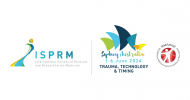Session outline
After identifying a gap in service provision, gathering support for new health services can be very challenging. Although the deficiencies may seem self-evident and clearly warrant the exploration of new ideas or novel models of care, gaining support and the resources necessary to implement change is no easy task.
This workshop details the experiences of a group of Australian clinicians who have successfully navigated this process and developed a comprehensive health assessment / model of care for patients with physical and intellectual disability, complex health issues and challenging behaviours utilising sedation and anaesthesia. The goal of this program is to improve clinical outcome and experience for the patient and their family with a resulting high demand, growth, and government support for this service.
Discrepancies in service delivery to people with complex developmental disabilities (DD) and their families has always been evident across Australia. For example, South Australian clinicians have developed their own model of care including provision of light sedation which has coincided with different governance as disability healthcare shifted to mainstream health services under the National Disability Insurance Scheme. Victorian community health services are also seeking to implement preventative health for adults with disability. In New South Wales, inconsistencies exist between comprehensive care within paediatric services to adult health services for the provision of sedation and delivery of healthcare for people with DD, which in turn provide a challenge for clinicians supporting young adults transitioning between health services.
However, no state-wide or national guidelines for such models exist, and there is limited literature to act as an evidence base to shape or support specific models of care. Therefore, models of care have largely varied depending on local health service assessment of risk and skill required in the provision of conscious sedation.
This workshop will describe service development process from inception to implementation into clinical practice. A forum discussion including Rehabilitation Medicine, Anaesthetics and allied health disciplines will highlight the barriers encountered and describe ways of finding the means or people to overcome them. Further discussion will be framed on what lies beyond a pilot, and planning the future enhancements needed to create a sustainable clinical service.
Learning outcomes
- Development of a model of care
- Gathering support
- Planning future enhancement
- Resourcing
- Assessing qualitative and quantitative outcomes
- Transition and Adult disability
Target audience
- Allied health
- Medical practitioners
- Students
- Trainees
- Nursing staff
- General public
- Policy makers



